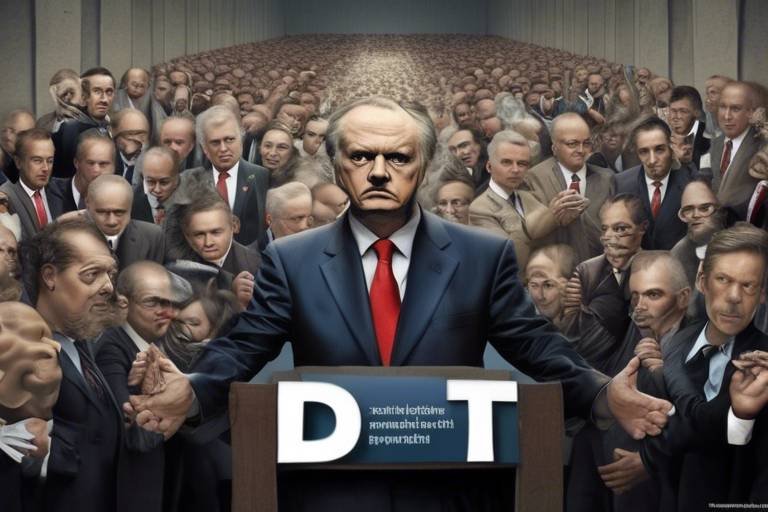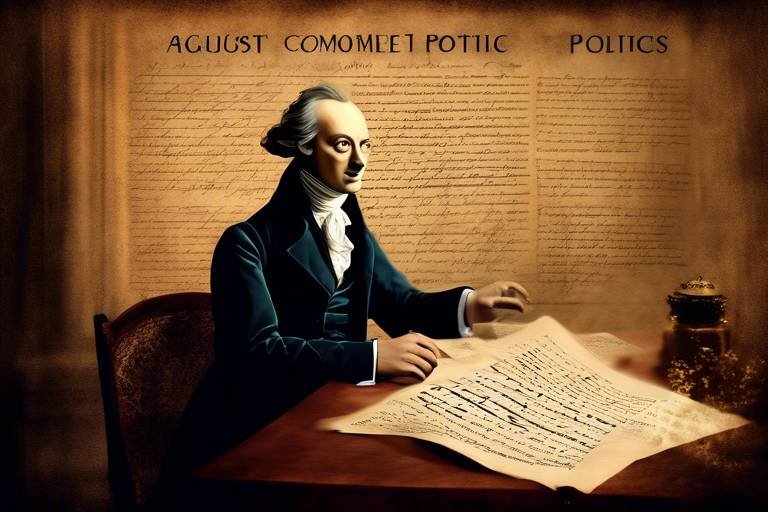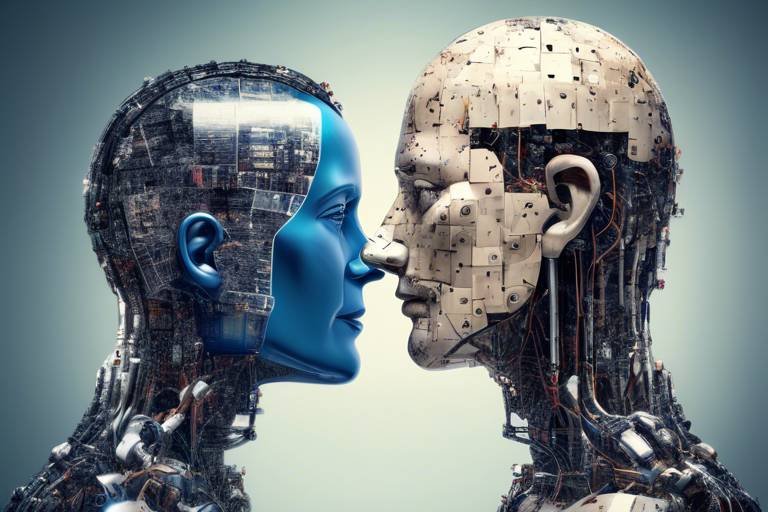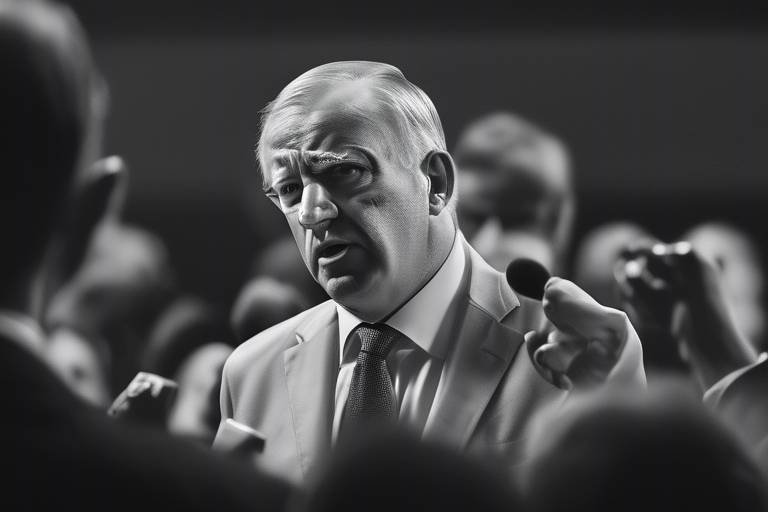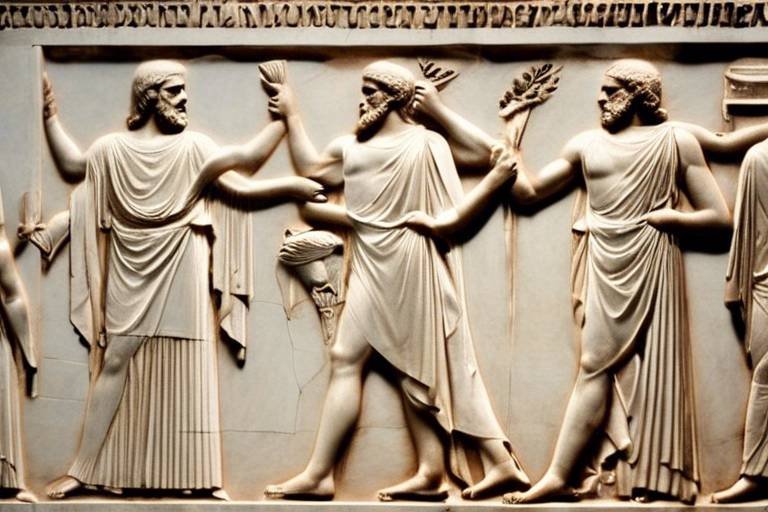What Impact Does Philosophy Have on Politics?
Philosophy and politics are two intertwined fields that have shaped human civilization in profound ways. At first glance, they may seem like distant realms—one abstract and theoretical, the other practical and action-oriented. However, the truth is that philosophical ideas are the bedrock upon which political ideologies are built. Whether we realize it or not, our beliefs about justice, governance, and human rights stem from philosophical thought. This article explores the intricate relationship between philosophy and politics, examining how philosophical ideas shape political ideologies, governance, and public policy.
Think about it: every time a politician makes a decision, they are often guided by underlying philosophical principles, whether they acknowledge them or not. From the way laws are crafted to the manner in which leaders justify their actions, philosophy plays a crucial role in shaping the narrative of governance. For instance, when a government decides to implement social welfare programs, it is often influenced by philosophical ideas about the role of the state in ensuring the well-being of its citizens. Similarly, debates around personal freedoms and government intervention are deeply rooted in philosophical discussions about individual rights and responsibilities.
Moreover, the impact of philosophy on politics is not just historical; it is ongoing. In today's world, we see a resurgence of philosophical discourse influencing modern political movements. Activists and leaders draw upon philosophical concepts to advocate for change, whether it be through the lens of utilitarianism, which seeks the greatest good for the greatest number, or libertarianism, which champions individual freedoms. This interplay between philosophy and politics is essential for understanding the complexities of contemporary governance and societal change.
As we delve deeper into this topic, we will uncover how historical perspectives on philosophy and politics illuminate the evolution of political systems. We will also explore the contributions of key philosophers and their political theories, revealing how their ideas continue to resonate in today's political landscape. Ultimately, understanding the impact of philosophy on politics allows us to grasp the underlying motivations behind political actions and ideologies, making it a vital area of study for anyone interested in the mechanics of governance.
- How does philosophy influence political ideologies? Philosophy provides the foundational beliefs and values that shape political ideologies, guiding how societies understand concepts like justice, freedom, and governance.
- Can philosophy change political systems? Yes, philosophical ideas can inspire movements that lead to significant changes in political systems, as seen during the Enlightenment and various social justice movements.
- What role do philosophers play in modern politics? Philosophers contribute to political discourse by providing ethical frameworks and critiques of existing political systems, influencing policymakers and activists alike.
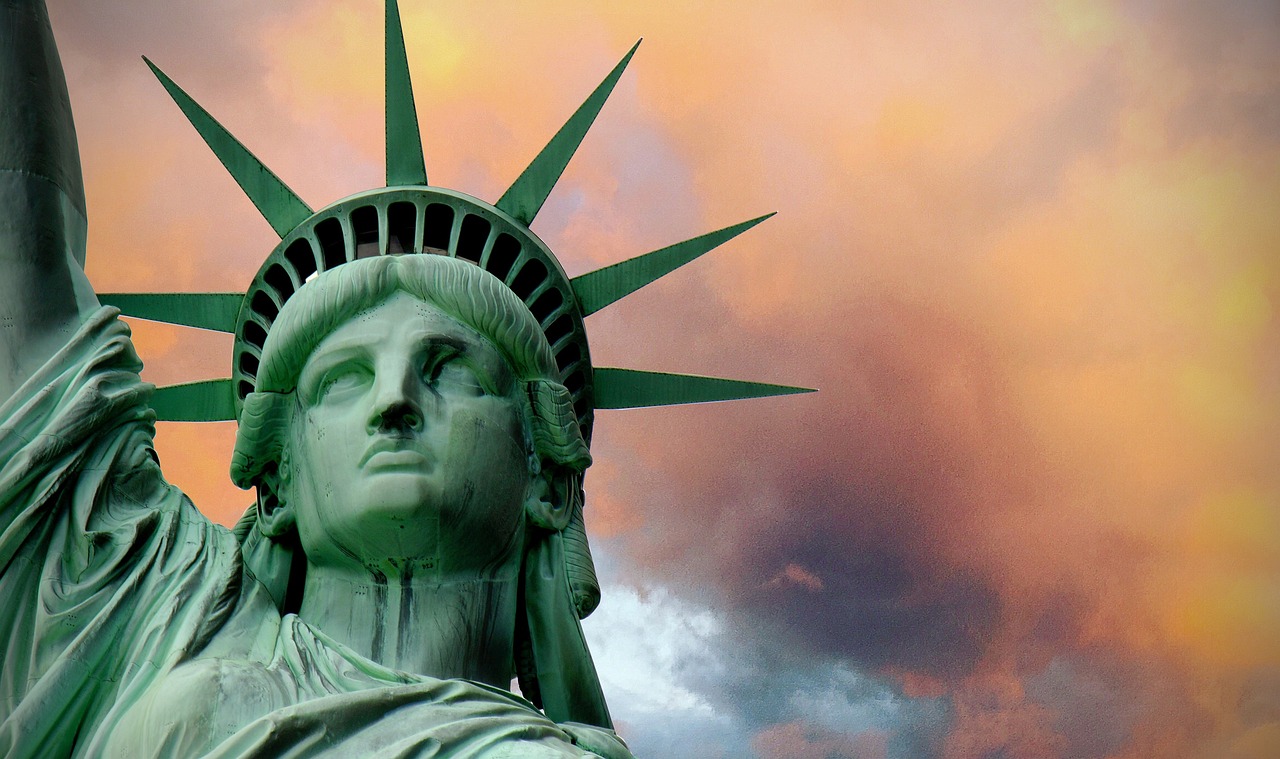
Historical Perspectives on Philosophy and Politics
Understanding the intricate relationship between philosophy and politics requires a journey through history, where ideas have shaped societies and governance structures. From ancient civilizations to modern democracies, philosophical thought has been a guiding force in the evolution of political ideologies. The interplay between these two domains is not merely academic; it has profound implications for how we understand power, justice, and the role of the individual within the state.
In ancient Greece, the seeds of political philosophy were sown by thinkers like Plato and Aristotle, whose ideas about governance and ethics continue to resonate today. Plato's vision of an ideal state, governed by philosopher-kings, posited that only those who understand the essence of justice should wield power. This concept laid the groundwork for discussions on the legitimacy of authority and the moral responsibilities of leaders.
Aristotle, on the other hand, took a more pragmatic approach. He analyzed various political systems and categorized them based on their strengths and weaknesses. His emphasis on empirical observation and the importance of ethics in governance has shaped modern political science, urging us to consider not just the 'what' of politics, but the 'why' behind decisions. This historical perspective reveals that political thought is not static; it evolves as societies change and adapt to new challenges.
The Middle Ages saw the rise of religious influence in politics, with philosophers like St. Augustine and Thomas Aquinas integrating Christian theology with political theory. Their thoughts on natural law and moral governance introduced a new dimension to the political landscape, emphasizing that the state should reflect moral order. This period illustrated how philosophy could provide a framework for ethical governance, influencing the development of monarchies and the role of the church in state affairs.
As we moved into the Renaissance and Enlightenment periods, the focus shifted towards individual rights and democratic principles. Thinkers like John Locke and Jean-Jacques Rousseau championed the idea of social contracts, arguing that governments derive their authority from the consent of the governed. This revolutionary thought paved the way for modern democratic institutions and the recognition of human rights, forever altering the political landscape.
The 20th century brought about significant political upheaval and transformation, where philosophical ideas were put to the test. The rise of totalitarian regimes challenged the very essence of individual freedom and ethical governance. Philosophers like Hannah Arendt examined the nature of power and responsibility in the face of such tyranny, urging society to remain vigilant against the erosion of democratic values.
In summary, the historical perspectives on philosophy and politics reveal a rich tapestry of ideas that have shaped governance and societal norms. The dialogue between these two fields not only enriches our understanding of political systems but also serves as a reminder of the moral responsibilities that come with power. As we continue to grapple with contemporary issues, reflecting on this historical interplay can provide valuable insights into the challenges we face today.
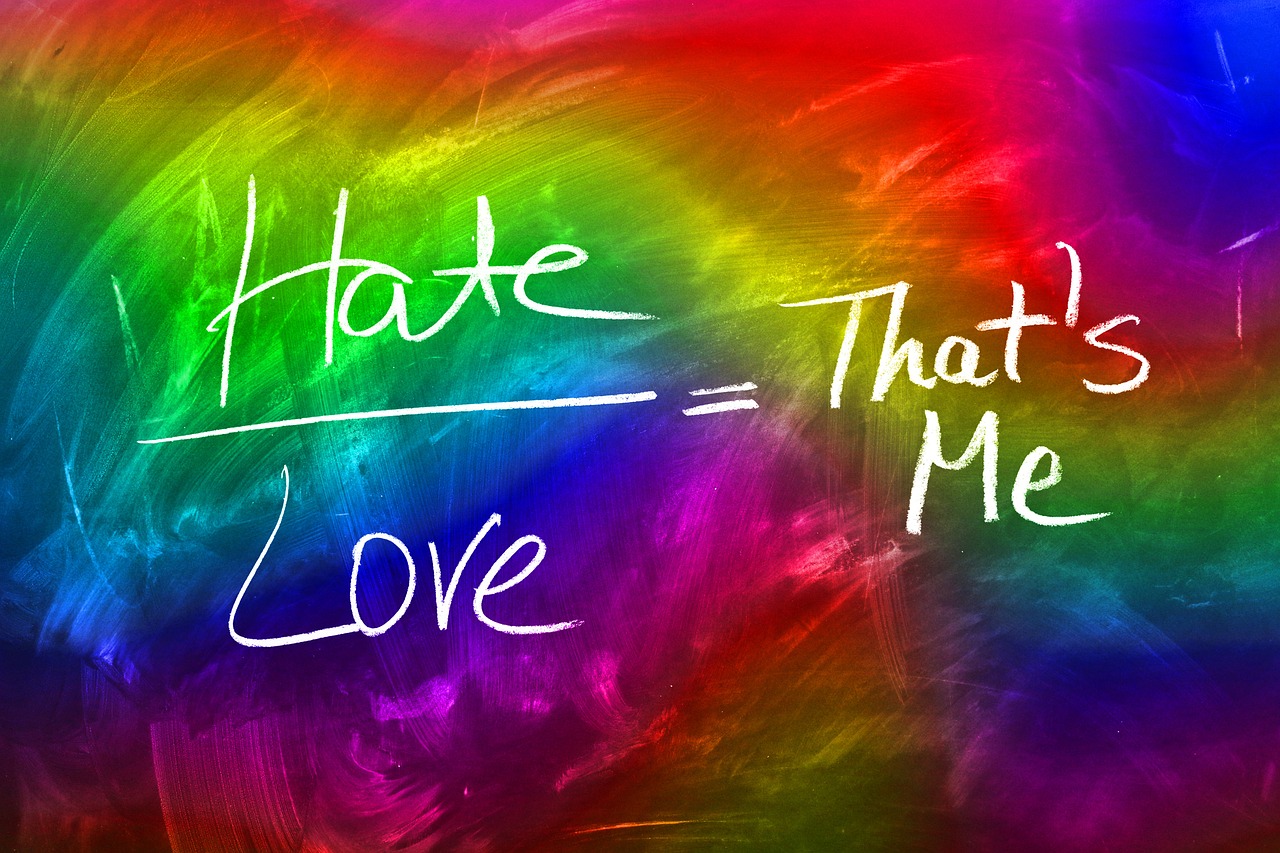
Key Philosophers and Their Political Theories
The realm of political thought has been profoundly shaped by the insights and ideas of various philosophers throughout history. Each philosopher has offered unique perspectives that have helped define and mold political ideologies and practices. Understanding these contributions is essential for grasping the complexities of modern governance. Let's delve into the influential thoughts of these key figures, starting with the ancient Greeks.
Plato, a towering figure in Western philosophy, envisioned a society governed by philosopher-kings. In his seminal work, "The Republic," he argued that the most just and effective governance arises when the rulers are wise and knowledgeable. Plato believed that only those who truly understand the Forms, especially the Form of the Good, are fit to lead. This concept of an ideal state emphasizes the importance of virtue and wisdom in leadership. Plato's influence can be seen in various political theories that advocate for a meritocratic system, where leaders are chosen based on their intellectual capabilities rather than wealth or popularity.
Aristotle, Plato's student, took a more pragmatic approach to politics. In his work "Politics," he emphasized the importance of empirical observation and the study of human behavior in political life. Aristotle believed that politics is not just about ideals but also about the realities of human nature. He introduced the idea of the "best" government being one that serves the common good, which can take various forms—monarchy, aristocracy, or democracy—depending on the context. His focus on ethics and virtue in governance laid the groundwork for modern political science, highlighting the necessity of balancing power with moral responsibility.
Fast forward to the Renaissance, and we encounter Niccolò Machiavelli, whose work "The Prince" revolutionized political thought with its candid exploration of power dynamics. Unlike his predecessors, Machiavelli was unflinching in his acknowledgment of the darker aspects of human nature. He argued that effective rulers must sometimes resort to morally ambiguous tactics to maintain stability and power. His concept of Realpolitik emphasizes the importance of pragmatism in politics over idealism, a perspective that continues to resonate in contemporary political discourse. Machiavelli's insights remind us that the pursuit of power often requires tough choices, a theme that echoes through the corridors of modern governance.
The Enlightenment era marked a significant shift in political thought, with philosophers like John Locke, Jean-Jacques Rousseau, and Thomas Hobbes contributing groundbreaking ideas about liberty, democracy, and human rights. Locke's theories on natural rights and government by consent laid the foundation for modern democracy, while Rousseau's concept of the social contract emphasized the importance of collective will. Hobbes, on the other hand, presented a more cynical view of human nature, advocating for a strong central authority to prevent chaos. The interplay of these ideas during the Enlightenment significantly shaped the political landscape, leading to the development of democratic institutions that prioritize individual rights and freedoms.
In summary, the contributions of key philosophers have been instrumental in shaping political theories that continue to influence governance today. From Plato's idealism to Machiavelli's realism and the Enlightenment's emphasis on rights and democracy, these thinkers provide a rich tapestry of ideas that help us understand the complexities of political life.
- What is the main idea behind Plato's political philosophy? Plato believed in a society governed by philosopher-kings who possess wisdom and virtue, leading to a just and ideal state.
- How did Aristotle's views differ from Plato's? Aristotle took a more realistic approach, focusing on empirical observation and the practical aspects of governance rather than abstract ideals.
- What is Machiavelli's contribution to political thought? Machiavelli introduced the concept of Realpolitik, emphasizing pragmatism and the sometimes morally ambiguous nature of political power.
- How did Enlightenment thinkers influence modern politics? Enlightenment philosophers advocated for individual rights, democracy, and the social contract, laying the groundwork for contemporary democratic institutions.

Plato's Ideal State
Plato's vision of an ideal state is a fascinating exploration into the intersection of philosophy and governance. In his seminal work, "The Republic," Plato paints a picture of a society governed by philosopher-kings—wise rulers who possess the knowledge and virtue necessary to lead justly. But what does this really mean? Imagine a world where leaders are not just politicians but are individuals who have dedicated their lives to understanding the essence of justice, goodness, and truth. This concept is revolutionary, suggesting that only those who truly understand what is best for society should hold power.
In Plato's ideal state, the structure of governance is meticulously organized into three distinct classes: the ruling class, the auxiliaries, and the producers. Each class has its own role and responsibilities, ensuring that the state functions harmoniously. The rulers, or philosopher-kings, are tasked with making decisions that reflect the common good, while the auxiliaries protect the state, and the producers handle the economic aspects. This tripartite system mirrors the human soul, which Plato divides into three parts: reason, spirit, and appetite. Thus, a just society, according to Plato, is one where reason governs spirit and appetite, leading to a balanced and harmonious existence.
One of the most striking aspects of Plato's ideal state is the emphasis on education and the pursuit of knowledge. Plato believed that only through rigorous education could individuals ascend to the level of philosopher-king. This rigorous training involves a long process of intellectual development, including the study of mathematics, dialectics, and philosophy. The goal is to cultivate leaders who can comprehend the Forms—the abstract ideals that represent the highest level of reality. Without this deep understanding, Plato argues, rulers would be ill-equipped to govern justly. Therefore, education becomes the cornerstone of a well-functioning state, ensuring that those in power are not only knowledgeable but also virtuous.
Moreover, Plato’s ideal state challenges contemporary notions of democracy and individualism. In his view, the common good supersedes personal interests, which raises the question: Should the desires of the individual be sacrificed for the greater good? This idea can be quite controversial, especially in modern societies that champion individual rights and freedoms. Yet, Plato's argument remains compelling: a society led by the wise is more likely to achieve justice and harmony than one driven by the whims and caprices of the masses.
In summary, Plato's ideal state serves as a profound philosophical framework that continues to influence political thought today. His emphasis on wisdom, education, and the common good invites us to reconsider the qualities we value in our leaders and the structures of our political systems. As we navigate the complexities of modern governance, Plato's insights challenge us to reflect on the nature of justice and the role of philosophy in shaping a better society.
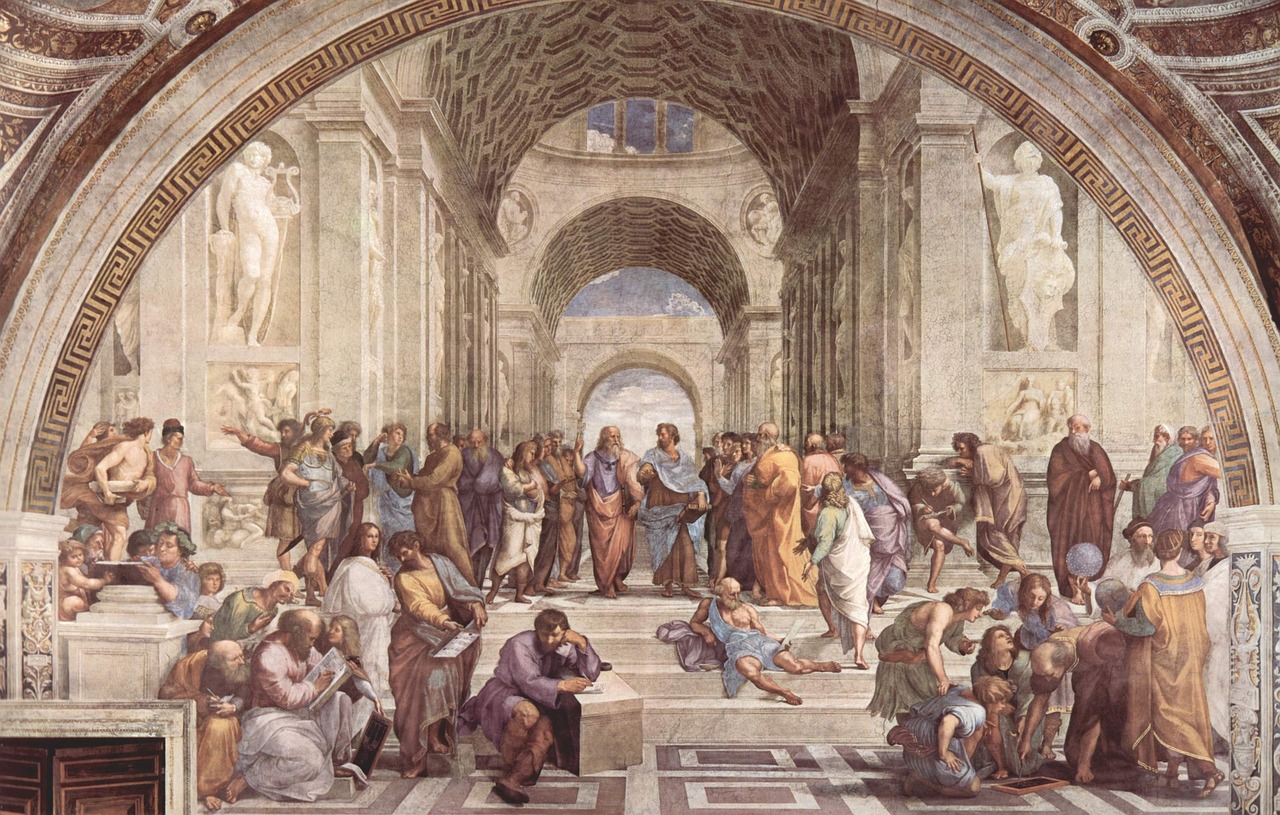
Aristotle's Political Realism
Aristotle's political realism is a fascinating lens through which we can understand the intricate dance between ethics and governance. Unlike his mentor Plato, who envisioned an ideal state governed by philosopher-kings, Aristotle grounded his political theories in the reality of human nature and societal structures. He believed that politics should be studied as it is, rather than as it ought to be, which makes his approach refreshingly pragmatic. Aristotle posited that humans are inherently social beings, and thus, the essence of politics lies in the organization of society to ensure the common good.
One of the key elements of Aristotle's political thought is the concept of virtue ethics. He argued that the best political system is one that cultivates virtue among its citizens. This means that a government should not only focus on laws and regulations but also on creating an environment that encourages moral development. Aristotle famously stated, "The good for man is an activity of the soul in accordance with virtue," implying that a just society is one that nurtures the moral character of its individuals.
Aristotle also emphasized the importance of empirical observation in understanding political systems. He believed that to create effective governance, one must study various constitutions and political systems in practice. This empirical approach led him to categorize governments into three ideal types: monarchy, aristocracy, and polity, contrasting them with their corrupt forms: tyranny, oligarchy, and democracy. This classification highlights his belief that political systems must be adaptable and responsive to the needs of the people they serve.
Moreover, Aristotle's notion of the "golden mean" plays a crucial role in his political realism. He argued that virtue lies between extremes, and this principle can be applied to governance. For instance, he believed that a balanced government, which incorporates elements of democracy and oligarchy, is more stable and just than one that leans too heavily towards either extreme. This idea resonates in modern political discourse, where the importance of balance and moderation is often emphasized in policy-making.
In summary, Aristotle's political realism offers a practical framework for understanding the complexities of governance. By focusing on human nature, empirical evidence, and the cultivation of virtue, Aristotle provides timeless insights that continue to influence political thought today. His work encourages us to reflect on the nature of justice and the role of citizens in shaping a just society, making it a cornerstone of political philosophy.
- What is Aristotle's view on democracy? Aristotle viewed democracy as a potentially corrupt form of government, but he acknowledged its importance in providing a voice to the masses. He believed a mixed government, incorporating democratic elements, could lead to a more stable society.
- How does Aristotle's political realism differ from Plato's idealism? While Plato focused on the ideal forms of governance led by philosopher-kings, Aristotle emphasized the practical realities of human society and the need for governance that reflects human nature.
- What role does virtue play in Aristotle's political theory? Virtue is central to Aristotle's political thought; he argued that a just government should promote the moral development of its citizens to achieve the common good.

Machiavelli's Realpolitik
When we think of politics, we often envision grand speeches, noble ideals, and lofty principles. However, invites us to peek behind the curtain of political theater and confront the gritty realities of power dynamics. In his seminal work, The Prince, Machiavelli presents a candid analysis of political leadership, advocating for a pragmatic approach that prioritizes effectiveness over morality. This perspective can be jarring, as it challenges the romantic notions of governance that many hold dear.
Machiavelli famously asserted that "the ends justify the means," a phrase that encapsulates his belief that rulers must be willing to make difficult, sometimes morally ambiguous decisions to maintain stability and power. This idea resonates with many contemporary political leaders who face complex challenges in an ever-evolving global landscape. For instance, consider a leader navigating international relations who must choose between fostering alliances or engaging in questionable tactics to secure national interests. The essence of Machiavelli's philosophy lies in the understanding that politics is not merely a realm of ideals but a battleground of competing interests.
Moreover, Machiavelli's emphasis on the importance of perception cannot be overstated. He argued that a ruler must appear virtuous, even if their actions contradict this image. This duality is crucial for maintaining public support and authority. In today's political climate, we see this play out regularly—leaders often engage in public relations strategies that prioritize image over substance. The realpolitik approach encourages politicians to be shrewd and strategic, navigating the murky waters of public opinion while making decisions that may be unpopular but necessary.
In examining the implications of Machiavelli's ideas, we can identify several key themes that continue to shape political discourse:
- Power Dynamics: Understanding the nature of power and how it can be wielded effectively is central to Machiavelli's thought.
- Pragmatism: The need for practical solutions in governance, often at the expense of idealism.
- Ethical Ambiguity: Acknowledging that moral dilemmas are inherent in political decision-making.
Ultimately, Machiavelli's Realpolitik serves as a reminder that politics is a complex interplay of human behavior, strategy, and power. It challenges us to reconsider our expectations of political leaders and the decisions they make. Are we prepared to accept that sometimes, the harsh realities of governance require a departure from our ethical ideals? This question remains relevant as we navigate the intricacies of modern politics, where the lessons from Machiavelli continue to resonate with leaders and citizens alike.
1. What is Machiavelli's main argument in The Prince?
Machiavelli argues that political leaders must prioritize the stability and power of the state, often employing pragmatic and sometimes ruthless tactics to achieve their goals.
2. How does Realpolitik differ from traditional political philosophy?
Realpolitik focuses on practical and pragmatic approaches to politics, often sidelining ethical considerations, while traditional political philosophy emphasizes moral ideals and principles.
3. Can Machiavelli's ideas be applied to modern politics?
Yes, many contemporary political leaders and theorists draw on Machiavelli's insights to navigate the complexities of power, governance, and public perception.

Influence of Enlightenment Thinkers
The Enlightenment was a remarkable period that ignited a spark of intellectual fervor across Europe, fundamentally reshaping the landscape of political thought. Thinkers like John Locke, Voltaire, and Jean-Jacques Rousseau championed ideas that would not only challenge the status quo but also lay the groundwork for modern democratic governance. These philosophers argued for the importance of reason, individualism, and the social contract, which collectively transformed how societies viewed authority and governance.
At the heart of Enlightenment philosophy was the belief that human beings are capable of reason and that this reason should guide political structures. Locke, for example, emphasized the concept of natural rights—life, liberty, and property—which became pivotal in shaping democratic ideologies. He argued that governments should exist to protect these rights, and if they failed to do so, the people had the right to overthrow them. This notion was revolutionary and directly influenced the American and French Revolutions, where the idea of government by consent of the governed took center stage.
Moreover, Voltaire's advocacy for civil liberties, including freedom of speech and religion, challenged the oppressive regimes of his time. His famous quip, “I disapprove of what you say, but I will defend to the death your right to say it,” encapsulates the spirit of Enlightenment thought. This emphasis on individual rights and freedoms paved the way for modern human rights discussions and established a framework for civil societies.
Rousseau, on the other hand, introduced the idea of the social contract, arguing that legitimate political authority relies on the consent of the governed. He believed that individuals must come together to form a collective will, which ultimately serves the common good. This perspective not only influenced political theory but also inspired movements advocating for social justice and equality, emphasizing that the voice of the people is fundamental in shaping governance.
The Enlightenment thinkers collectively challenged traditional authority and inspired a shift towards democratic ideals. Their ideas fostered an environment where questioning and reforming political structures became not just acceptable but necessary. As we look at modern political movements and institutions, it is evident that the echoes of Enlightenment philosophy continue to resonate, reminding us that the pursuit of liberty, equality, and fraternity is an ongoing journey.
In summary, the influence of Enlightenment thinkers cannot be overstated. Their revolutionary ideas regarding human rights, governance, and the role of the individual in society have left an indelible mark on political thought. As we navigate the complexities of contemporary politics, the foundational principles laid down by these philosophers serve as a guiding light, urging us to uphold the values of reason, justice, and collective responsibility.
- What is the main idea behind Enlightenment philosophy?
The Enlightenment philosophy primarily emphasizes reason, individualism, and skepticism of traditional authority, advocating for human rights and democratic governance. - How did Enlightenment thinkers influence modern politics?
They introduced concepts such as natural rights, the social contract, and civil liberties, which have become cornerstones of modern democratic systems. - Who are some key Enlightenment philosophers?
Key figures include John Locke, Voltaire, and Jean-Jacques Rousseau, each contributing significantly to political thought.

Philosophy's Role in Modern Political Movements
In today’s world, the influence of philosophy on political movements is as profound as ever. The guiding principles derived from philosophical thought not only shape the ideologies of various movements but also provide the moral compass that activists rely on. From the civil rights movement to environmental activism, philosophical underpinnings are integral to understanding the motivations and goals of these movements. For instance, the concept of justice, as articulated by philosophers like John Rawls, has become a cornerstone for those advocating for social equity and reform.
Moreover, modern political movements often draw upon a rich tapestry of philosophical ideas to articulate their demands and justify their actions. Take, for example, the principles of utilitarianism. This ethical theory emphasizes the greatest good for the greatest number, and it has become a rallying cry for various social welfare initiatives. Activists argue that policies should be assessed on their outcomes, pushing for reforms that benefit the majority. This approach not only influences public policy but also shapes the discourse around economic and healthcare reforms. In this way, philosophical ideas fuel the engines of activism, providing both rationale and direction.
Another significant philosophy that has permeated modern political discourse is libertarianism. This ideology prioritizes individual rights and minimal government intervention, impacting debates surrounding personal freedoms and civil rights. In an era where discussions about privacy, surveillance, and personal autonomy are at the forefront, libertarian principles serve as a critical framework for those advocating against government overreach. Activists often invoke these philosophical tenets to argue for policies that protect individual liberties, illustrating how deeply intertwined philosophy is with contemporary political movements.
Furthermore, the intersection of philosophy and activism is evident in the rise of movements focused on social justice. Philosophers such as Frantz Fanon and bell hooks have profoundly influenced contemporary discussions on race, gender, and class. Their works challenge systemic inequalities and advocate for a more just society. As a result, movements addressing issues like racial injustice and gender equality often reference these philosophical ideas, illustrating how they continue to inspire and empower individuals fighting for change.
To summarize, the role of philosophy in modern political movements is multifaceted and dynamic. It provides a framework for understanding complex social issues and offers ethical guidance for activists striving for a better world. As these movements evolve, the philosophical ideas that underpin them will undoubtedly continue to shape their trajectories, ensuring that the dialogue around politics remains rich and deeply rooted in ethical considerations.
- How does philosophy influence political ideologies?
Philosophy provides the foundational ideas that shape political ideologies, influencing how societies understand justice, rights, and governance. - What role do philosophers play in modern political movements?
Philosophers offer ethical frameworks and critical perspectives that inform the goals and methods of contemporary political activism. - Can philosophy help resolve political conflicts?
Yes, philosophical discussions can foster understanding and dialogue, helping to bridge divides and find common ground in political conflicts.

Utilitarianism and Policy Making
Utilitarianism, a philosophical doctrine primarily associated with thinkers like Jeremy Bentham and John Stuart Mill, plays a pivotal role in shaping modern policy-making processes. At its core, utilitarianism advocates for actions that maximize happiness or well-being for the greatest number of people. This principle introduces a pragmatic approach to governance, urging policymakers to consider the broader implications of their decisions on society as a whole. Imagine a scale where the happiness of the many outweighs the suffering of the few; this is the essence of utilitarian thought.
In practice, utilitarianism influences various sectors, including economics, healthcare, and social welfare. For instance, when governments evaluate healthcare policies, they often weigh the potential benefits against the costs, aiming to allocate resources in a way that maximizes overall health outcomes. This method can be illustrated in the following table:
| Policy Area | Utilitarian Approach | Outcome |
|---|---|---|
| Healthcare | Invest in preventive care to reduce overall disease burden | Lower healthcare costs and improved population health |
| Education | Fund programs that benefit the largest number of students | Increased literacy and job readiness |
| Social Welfare | Target assistance programs to those most in need | Reduction in poverty rates and improved quality of life |
However, the application of utilitarianism in policy-making is not without its challenges. Critics argue that this approach can sometimes overlook the rights of minorities, leading to a “tyranny of the majority.” For instance, if a policy benefits the majority but marginalizes a small group, it raises ethical concerns about justice and fairness. Therefore, while utilitarianism provides a useful framework for evaluating policies, it must be balanced with considerations of **equity** and **justice**.
Furthermore, the effectiveness of utilitarianism in policy-making often depends on the availability of accurate data to assess potential outcomes. Policymakers must rely on empirical evidence to predict how different choices will impact the population. This reliance on data underscores the importance of research and analysis in crafting effective policies that genuinely serve the public good.
In summary, utilitarianism offers a powerful lens through which to view policy-making, emphasizing the importance of outcomes and the collective well-being of society. As we navigate complex social issues, the principles of utilitarianism can guide us toward decisions that not only aim for the greatest good but also encourage a more thoughtful and ethical approach to governance.
- What is utilitarianism? Utilitarianism is a philosophical theory that suggests that the best action is the one that maximizes utility, usually defined as that which produces the greatest well-being of the greatest number of people.
- How does utilitarianism influence policy-making? Utilitarianism influences policy-making by encouraging decisions that aim to achieve the greatest good for the largest number of people, often through cost-benefit analyses.
- What are the criticisms of utilitarianism? Critics argue that utilitarianism can lead to the neglect of individual rights and the potential for justifying harmful actions against minorities if those actions benefit the majority.
- Can utilitarianism be applied to all areas of public policy? While utilitarianism can be applied broadly, its effectiveness varies by context and requires careful consideration of ethical implications and data accuracy.

Libertarianism and Individual Rights
Libertarianism, at its core, champions the idea that individual rights are paramount. This philosophy posits that every person should have the freedom to make choices about their own life, as long as those choices do not infringe upon the rights of others. Imagine a world where your personal decisions—be it your career, your lifestyle, or even your beliefs—are solely yours to make, free from the heavy hand of government intervention. This is the essence of libertarian thought.
One of the most compelling aspects of libertarianism is its emphasis on personal liberty. Libertarians argue that individuals are best equipped to determine what is right for themselves. This belief leads to a political discourse that prioritizes minimal government involvement in personal affairs. For instance, consider how libertarians view issues such as drug use, marriage, and even education. They advocate for a system where individuals can choose how to live their lives without excessive regulation. This notion is often encapsulated in the phrase, "live and let live."
Libertarians also maintain that economic freedom is essential for individual rights. They argue that when the government imposes regulations, it often stifles innovation and personal initiative. To illustrate this point, let’s look at a few key areas where libertarian principles advocate for reduced government intervention:
- Free Market Economy: Libertarians believe that a free market, driven by supply and demand, leads to better products and services for consumers.
- Taxation: Many libertarians view taxation as a form of theft, arguing that individuals should keep what they earn and spend it as they see fit.
- Healthcare: They often support a privatized healthcare system, asserting that competition will improve quality and accessibility.
However, the libertarian perspective is not without its challenges. Critics argue that an extreme focus on individual rights can lead to a lack of social responsibility. For instance, how do we address issues like poverty or public health in a system that minimizes government intervention? Libertarians counter that community and voluntary organizations can fill these gaps, promoting a more decentralized approach to social welfare.
In contemporary political discourse, libertarianism has significantly influenced debates around civil liberties and government overreach. Issues such as surveillance, freedom of speech, and personal privacy are often at the forefront of libertarian advocacy. For example, the rise of digital privacy concerns has led libertarians to champion reforms that protect individual data from government surveillance, emphasizing that citizens should have control over their personal information.
In summary, libertarianism presents a compelling argument for the importance of individual rights in the political landscape. It challenges us to consider the balance between personal freedom and societal responsibility, pushing for a political environment where individuals can thrive without undue interference. As we navigate the complexities of modern governance, the principles of libertarianism remind us to prioritize the rights and freedoms that form the bedrock of a democratic society.
Q: What is the main principle of libertarianism?
A: The main principle of libertarianism is the belief in maximizing individual rights and minimizing government intervention in personal and economic matters.
Q: How does libertarianism view taxation?
A: Libertarians generally view taxation as a form of coercion and advocate for minimal or no taxes, believing individuals should keep and control what they earn.
Q: What are some criticisms of libertarianism?
A: Critics argue that libertarianism can lead to insufficient support for the vulnerable and may neglect the need for some level of government intervention in social issues.
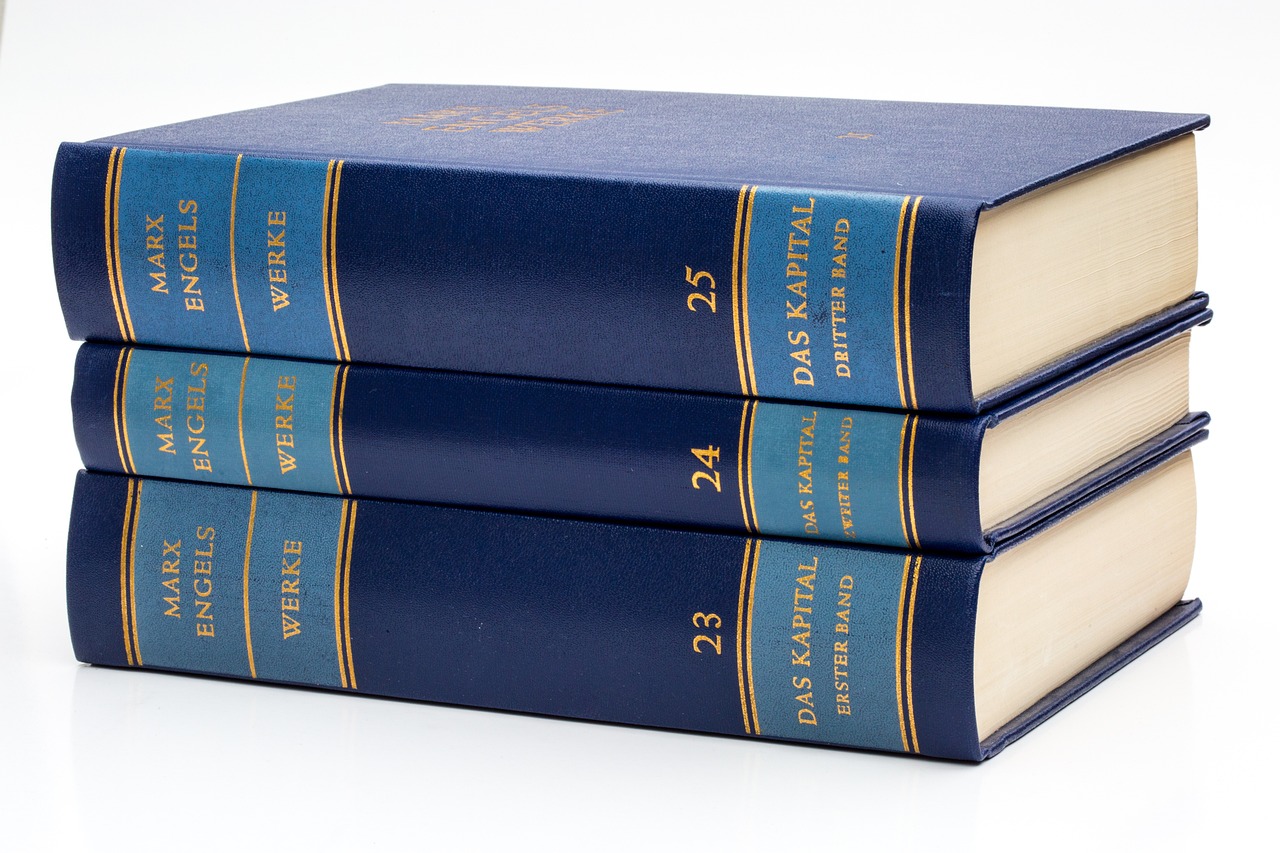
Ethics in Political Decision-Making
When we dive into the world of politics, we quickly realize that it’s not just about power plays and strategic maneuvers; it’s also about the ethical choices that leaders make every single day. These decisions can have profound implications on society, shaping laws, policies, and the very fabric of our communities. So, what does it mean to be ethical in politics? It’s about balancing the scales of justice while navigating the murky waters of human behavior and governance.
At the heart of political ethics lies a fundamental question: What is the right thing to do? This question often pits two major schools of thought against each other: consequentialism and deontology. Consequentialism focuses on the outcomes of actions, arguing that the morality of a decision should be judged by its results. On the other hand, deontology emphasizes the importance of following moral rules or duties, regardless of the consequences. This tension between the two approaches can complicate decision-making processes, leaving politicians grappling with the ethical dimensions of their choices.
For instance, consider a politician faced with the decision to implement a policy that could potentially harm a small group of people but would significantly benefit the majority. A consequentialist might argue in favor of the policy, believing that the overall good outweighs the harm done. Conversely, a deontologist would likely oppose it, adhering to the principle that it is wrong to harm individuals, regardless of the benefits to the larger population. This clash of ideologies illustrates the complexities of ethical decision-making in politics.
Moreover, the issue of political corruption further complicates the ethical landscape. Corruption can erode public trust and lead to a breakdown in the moral fabric of governance. To combat this, a robust ethical framework is essential. Philosophical principles can guide the establishment of standards that promote transparency and integrity. For example, creating clear guidelines for campaign financing can help reduce the influence of money in politics, ensuring that decisions are made in the best interest of the public rather than for personal gain.
In today’s political climate, where misinformation can spread like wildfire and public opinion can shift overnight, the need for ethical leadership is more critical than ever. Politicians must not only be aware of their own ethical responsibilities but also be prepared to hold themselves accountable for their actions. This accountability can take many forms, from public disclosures to independent oversight committees, ensuring that the voices of the people are heard and respected.
Ultimately, the relationship between ethics and political decision-making is a dynamic and evolving one. As society changes, so too do our expectations of our leaders. It’s essential for politicians to engage in ongoing ethical reflection, considering not just the immediate impacts of their decisions but also the long-term implications for democracy and the well-being of their constituents. By fostering a culture of ethical governance, we can work towards a political landscape that prioritizes the common good and upholds the values of justice and integrity.
- What is political ethics? Political ethics refers to the principles and standards that guide behavior and decision-making in politics, focusing on what is considered right and just.
- How do consequentialism and deontology differ? Consequentialism judges actions by their outcomes, while deontology focuses on adherence to moral rules or duties, regardless of the consequences.
- Why is accountability important in politics? Accountability ensures that politicians are held responsible for their actions, fostering trust and transparency in governance.
- What role does corruption play in political ethics? Corruption undermines ethical standards and public trust, making it crucial to establish frameworks that promote integrity and transparency in political processes.

Consequentialism vs. Deontology
When it comes to ethical decision-making in politics, the debate between consequentialism and deontology is not just academic; it’s a matter of real-world implications. At its core, consequentialism argues that the morality of an action is determined by its outcomes. If the result is beneficial for the majority, then the action is justified, no matter how questionable the means may be. Think of it this way: if a politician decides to implement a policy that benefits millions, even if it requires sacrificing a few individual rights, a consequentialist would likely support that decision. This perspective is often appealing in political discourse, especially when discussing policies related to healthcare, economics, or social welfare.
On the other hand, deontology stands firm on the idea that certain actions are inherently right or wrong, regardless of their consequences. This ethical framework emphasizes adherence to moral rules and duties. For instance, a deontologist would argue that violating individual rights for the sake of a greater good is unacceptable. They would advocate for policies that uphold justice and fairness, even if it means that some people may not benefit as much as others. This approach can be likened to the age-old adage, "the ends do not justify the means." In the political arena, this often leads to heated debates about issues like civil liberties, human rights, and governance.
The tension between these two ethical frameworks can lead to significant challenges in political decision-making. For example, consider a scenario where a government must decide whether to implement surveillance measures to enhance national security. A consequentialist might argue that the benefits of preventing potential terrorist attacks outweigh the invasion of privacy. Conversely, a deontologist would likely contend that such surveillance is an infringement of individual rights, regardless of its potential benefits. This clash illustrates how philosophical principles can shape policy debates and influence governance.
To further illustrate the differences, let’s break down the main characteristics of both approaches in the following table:
| Aspect | Consequentialism | Deontology |
|---|---|---|
| Focus | Outcomes and consequences of actions | Inherent morality of actions |
| Moral Judgment | Based on the greatest good for the greatest number | Based on adherence to rules and duties |
| Example | Justifying a policy that harms a few for the benefit of many | Opposing a policy that violates rights, even if it benefits the majority |
In conclusion, the debate between consequentialism and deontology is not merely theoretical; it has profound implications for political decision-making and governance. As we navigate the complexities of modern politics, understanding these ethical frameworks can empower citizens and leaders alike to make more informed choices that reflect their values and principles.
- What is the main difference between consequentialism and deontology?
Consequentialism focuses on the outcomes of actions to determine their morality, while deontology emphasizes the inherent morality of actions themselves, regardless of the outcomes. - How do these ethical theories apply to political decision-making?
These theories influence how politicians justify their policies, with consequentialists supporting actions that yield the greatest good and deontologists advocating for adherence to moral principles. - Can a politician be both a consequentialist and a deontologist?
Yes, many politicians may find themselves navigating between these two frameworks, sometimes applying consequentialist reasoning in certain situations while adhering to deontological principles in others.

Political Corruption and Ethical Standards
Political corruption is a pervasive issue that undermines the very foundations of governance and public trust. It refers to the abuse of power by government officials for illegitimate personal gain, and its implications can be devastating. Ethical standards play a crucial role in combating this corruption. When leaders prioritize integrity and accountability, they set a precedent that can ripple through society, fostering a culture of transparency and ethical behavior. However, the challenge lies in establishing and maintaining these standards in a world where the allure of power and wealth can corrupt even the most well-intentioned individuals.
To effectively tackle political corruption, it is essential to develop a robust ethical framework that guides decision-making processes. This framework should not only outline acceptable behaviors but also provide mechanisms for accountability. For instance, implementing clear regulations regarding campaign financing, lobbying, and public service conduct can help mitigate conflicts of interest and promote ethical governance. Moreover, education plays a vital role in instilling ethical values among public officials and citizens alike. By fostering a culture of ethical awareness, societies can empower individuals to recognize and challenge corrupt practices.
A practical approach to understanding the relationship between political corruption and ethical standards can be illustrated through the following table, which outlines key components necessary for a strong ethical framework in governance:
| Component | Description |
|---|---|
| Transparency | Ensuring that government actions and decisions are open to public scrutiny. |
| Accountability | Holding officials responsible for their actions and decisions. |
| Integrity | Encouraging honesty and strong moral principles among public officials. |
| Public Participation | Involving citizens in decision-making processes to enhance democratic governance. |
| Education and Training | Providing training on ethical standards and the importance of integrity in public service. |
Ultimately, the fight against political corruption is not solely the responsibility of government officials; it requires active participation from the public as well. Citizens must remain vigilant and engaged, advocating for ethical standards and demanding accountability from their leaders. By fostering an environment where ethical behavior is not just expected but celebrated, societies can begin to dismantle the structures that allow corruption to thrive. In essence, the establishment of ethical standards is not merely a bureaucratic necessity but a fundamental pillar for a healthy democracy.
As we navigate the complexities of modern governance, the intersection of ethics and politics will continue to be a crucial topic of discussion. By prioritizing ethical standards, we can work towards a future where political corruption is significantly diminished, and public trust is restored. This ongoing dialogue is essential, as it shapes the very essence of our political landscape and influences the quality of life for every citizen.
- What is political corruption? Political corruption refers to the misuse of power by government officials for personal gain, which can include bribery, nepotism, and embezzlement.
- How do ethical standards help in reducing corruption? Ethical standards create a framework for acceptable behavior, promote accountability, and encourage transparency, making it harder for corrupt practices to flourish.
- What role do citizens play in combating political corruption? Citizens can combat corruption by being vigilant, advocating for ethical standards, and participating actively in democratic processes.
- Can education reduce political corruption? Yes, education can instill ethical values and awareness among public officials and citizens, empowering them to recognize and challenge corrupt practices.
Frequently Asked Questions
- How does philosophy influence political ideologies?
Philosophy provides the foundational ideas that shape political ideologies. For instance, concepts like justice, liberty, and equality stem from philosophical discussions. These ideas influence how societies construct their laws, governance structures, and public policies, ultimately shaping the political landscape.
- What role did historical philosophers play in shaping modern politics?
Historical philosophers like Plato, Aristotle, and Machiavelli laid the groundwork for many political theories we see today. Plato's vision of philosopher-kings emphasized governance by wisdom, while Aristotle's empirical approach highlighted the importance of ethics in politics. Machiavelli introduced the idea of realism in politics, focusing on power dynamics that still resonate in contemporary political analysis.
- What impact did Enlightenment thinkers have on democracy?
The Enlightenment thinkers championed ideas of individual rights, liberty, and democracy, which fundamentally transformed political thought. Their advocacy for reason, science, and human rights laid the intellectual groundwork for modern democratic institutions, influencing revolutions and reforms across the globe.
- How do contemporary political movements reflect philosophical principles?
Contemporary political movements often draw from philosophical principles to guide their missions. For example, movements centered around social justice may utilize utilitarianism to advocate for policies that benefit the majority, while libertarian movements emphasize individual rights and minimal government interference.
- What is the significance of ethics in political decision-making?
Ethics in political decision-making is crucial as it addresses the moral responsibilities of leaders and the implications of their choices. Ethical frameworks help ensure accountability and transparency in governance, guiding politicians to make decisions that are not only effective but also morally sound.
- Can you explain the difference between consequentialism and deontology in politics?
Consequentialism focuses on the outcomes of actions, suggesting that the ends can justify the means, while deontology emphasizes adherence to moral rules regardless of the consequences. This tension influences political strategies and legislative processes, as leaders navigate complex ethical dilemmas in their decision-making.
- How does political corruption relate to ethical standards?
Political corruption often arises when ethical standards are weak or absent. Establishing strong ethical frameworks based on philosophical principles can help promote integrity and transparency in governance, ultimately reducing corruption and fostering public trust in political institutions.


